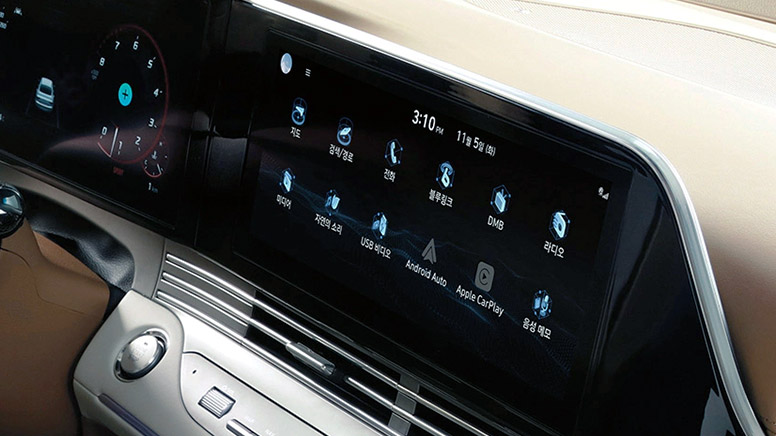Connected car innovations are the future we are about to face. The developers’ program run by automakers will be the pioneers.
The era of Connectivity has come. Our smartphones can handle everything – from office work to home IoT control. This evolution did not come from just one mighty state-of-the-art technology. It came from various kinds of services developed from open platforms. OS developers like Apple or Google shared their platform for free to create tons of fabulous smartphone apps.

Carmakers are trying to do the same. To make their cars smart devices holding thousands of IT technologies, automakers provide a suitable environment for their developers so that their customers can enjoy services such as in-car shopping or various IoT technologies.

Let’s find out who’s doing what. Ford is running its developer program since 2013. SmartDeviceLink (SDL) is an open-source technology platform on which the Ford AppLink product is built and allows it to communicate between applications running on a mobile device and our SYNC in-vehicle software. SDL allows any OEM suppliers to connect vehicle infotainment systems to 3rd party enabled applications. It can be deployed to any other popular embedded operating system and can communicate with any mobile device OS.

GM is also running its own Developers program. Using its emulator, JS Emulator, developers can create whatever application they want. For example, Glympse is the easiest way to safely share the driver’s location with someone in real-time. Without any complicated procedure, recipients receive a link allowing them to view the driver’s ETA and location in real-time for the length of time the driver chooses.

GM Developers also use their data sharing technology for commercial vehicles. Collaborating with geo-productivity software makers such as Onstar Vehicle Insight, Element Fleet Management, and MapAnything, it seeks to provide a smart logistics system. Any logistics company can experience innovative services, such as a real-time vehicle tracking feature or a driver management system.

Mercedes-Benz is more eager to support its developers to develop creative application services. They even organize challenges, such as Hackathon at Frankfurt Motor Show 2019. 12 startups ran for the championship for 24 hours, and the winner won Mercedes A-class and credits worth 20,000 Euros. Over 3,000 developers signed up for the competition. More developers guarantee better services for customers.

BMW is running its open platform ‘Lab’ to develop various kinds of services. The interesting part is that BMW allocates each city for each project so that the developers can create services based on the environment they are living in. BMW owners can also participate. The project participants can experience state-of-the-art connected car service from real-time traffic alerts to in-car mechanic booking service. There are some fun projects, too. A Plug-in hybrid owner gets a free coffee coupon if the driver succeeds in driving a certain distance only in electric mode.

Hyundai Motors also organized ‘Hyundai Developers’ for its better connected-car services. Based on an open platform, Hyundai Developers provide the necessary data needed for developing many different applications. All the services developed will be provided to all the Hyundai Connected Car owners. Hyundai Motors signed for MOU with four mobility startups. The connected car services are, for example, smart account service, smart mobile carwash service, in-car shopping, and smart used-car pricing service.

‘Macaron’ is an account book service using the database of the car. The program automatically applies the car’s accumulated range for more convenient car management. ‘Wiper’ is a smart mobile carwash service using the GPS tracker and the remote lock/unlock feature without handing over a car key. ‘Owin Pick’ is an In-car delivery service that allows the users to order, pay, and get delivered. ‘Cheot Cha’ is a used car dealer service based on the vehicle data analysis. It is expected to make a more transparent used car market.

Connected car services will enhance drivers’ driving life by huge by providing various services. They will provide more optimized services as they evolve. They would send the driving data about the brake or hazard lights to the developers when a car accident occurs. These data will then used for developing the services for crash prevention. For example, when a driver slams on the brakes, the car will send alerts to the cars nearby so that they would slow down for safety. Jaguar and Volvo are already featuring this connected car technology. Drivers can also calculate the exact amount of their car insurance payment, utilizing their driving data. The ‘Usage-Based Insurance’ by Hyundai Motors and Hyundai Insurance is one example.

Tons of connected car services developed by open platforms will indeed change our daily lives. Just as our cellphones evolved into smartphones, our cars will transform into smart devices. The developers’ program run by automakers will be the pioneers. They are the ones who can make valuable services that the drivers will enjoy. Connected car innovations are the future we are about to face. Let’s see what these open platforms will bring to us.
